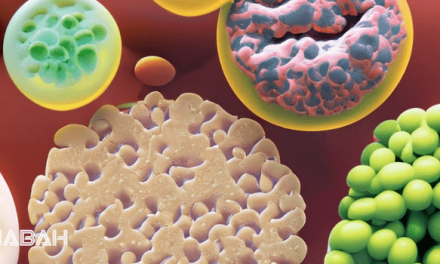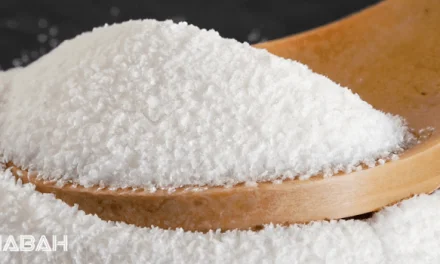Sorbitol is found in many mainstream food products from sugar-free gum to diet cookies. But is this ingredient allowed for Muslims to consume? The debate continues among Islamic scholars. While sorbitol contains “alcohol” in its chemical name, it belongs to a different class than intoxicating ethanolic alcohols.
After extensive research into how sorbitol is produced, its chemical properties, how the body metabolizes it, and analysis of Islamic legal rulings, the evidence largely sides with sorbitol being halal. However, there are some dissenting opinions on its permissibility worth exploring.
This comprehensive article takes a deep dive into all aspects of sorbitol to shed light on the question of whether it adheres to Islamic dietary regulations.
What Exactly is Sorbitol?
First, it’s important to understand what sorbitol is chemically. Sorbitol is a type of sugar alcohol, along with others like xylitol, maltitol, and mannitol. The term “sugar alcohol” can be misleading, since these are neither regular sugars nor intoxicating alcohols.
Structurally, sorbitol resembles sugar with its six carbon backbone. But it’s classified as a polyol, containing multiple hydroxyl groups. Sorbitol occurs naturally at low levels in some fruits and vegetables. However, the majority of sorbitol used in manufactured products is synthetically made.
Food-grade sorbitol is typically produced by hydrogenating glucose extracted from corn starch. The glucose goes through a catalytic reaction with hydrogen to transform into sorbitol. No fermentation takes place during this process.
Sorbitol Does Not Belong to the Same Class as Ethanol
One of the major arguments against sorbitol stems from part of its name – the “ol” ending, similar to ethanol alcohol. However, this categorization is inaccurate according to the chemical structure and metabolic processes.
Ethanol, which is found in intoxicating beverages like beer or wine, is fermented from sugars by yeast. The chemical formula for ethanol is C2H5OH. When consumed, ethanol is metabolized by the body into acetaldehyde and acetic acid, compounds that cause drunkenness.
In contrast, sorbitol has the chemical formula C6H14O6. It does not contain any ethanol and is not produced by fermentation. Metabolism of sorbitol does not generate inebriating substances. While sorbitol contains hydroxyl groups, its molecular structure vastly differs from that of ethanol or other forbidden alcoholic beverages.
So despite the partial name similarity, sorbitol clearly does not belong to the same class of alcohols prohibited in the Quran.
Non-Intoxicating and Safe at Low Levels of Consumption
Not only is sorbitol chemically distinct from ethanol, but it is also non-intoxicating and relatively non-toxic at the levels commonly consumed.
Studies show that sorbitol does not affect mental functioning or coordination even in large doses. The only effects at very high doses are gastrointestinal issues like abdominal pain, gas, and diarrhea due to the way sorbitol is metabolized and osmotically draws water into the intestines.
However, the amount of sorbitol added to foods is low enough that these side effects rarely occur. Authoritative bodies have set Acceptable Daily Intake (ADI) standards for sorbitol at up to 50 mg per kilogram of body weight. This demonstrates it is not considered harmful at typical exposure levels.
This evidence further supports that sorbitol does not belong to the same prohibited class of intoxicating substances in Islam.
Scholarly Perspectives on Sorbitol Being Halal
Examination of the scholarly debate around sorbitol sheds more light on its permissibility in Islam. The majority of authoritative Islamic councils and experts have permitted sorbitol, including:
- The Indonesian Council of Ulama (MUI)
- International Food and Nutrition Council of America (IFANCA)
- Islamic Organization for Food Standards (IOFS)
- European Council for Fatwa and Research (ECFR)
- Most individual muftis and scholars
These organizations ruled sorbitol as halal because it meets the Quran’s parameters of not intoxicating or harming the mind and body. However, some degree of disagreement persists.
For instance, the 8th International Halal Conference banned sorbitol due to the technical categorization as a “polyhydric alcohol.” The Muslim Consumer Group also prohibited it based on doubts about its name containing “alcohol.”
Overall though, the mainstream consensus permits sorbitol because it does not belong to the same class of intoxicating ethanolic alcohols discussed in Islamic scripture and avoids the haram nature of those substances. The prohibition appears to address ethanol specifically, not all chemical compounds containing hydroxyl groups.
Sorbitol Has Valid Functional Uses in Products
Beyond the chemical technicalities, sorbitol also has legitimate food science purposes that benefit consumers. Sorbitol occurs naturally in some fruits, so addition to certain products mimics the sweetness and moisture of real fruits.
Common uses of sorbitol include:
-
Sugar-free gum – Sorbitol provides a sweet flavor and smoother texture. It does not contribute to tooth decay like sugar.
-
Diet or “light” foods – Sorbitol allows lowering calories from sugar while providing bulk, moisture, and sweetness.
-
Oral care products – Sorbitol does not feed the bacteria that cause tooth decay.
-
Throat lozenges – Sorbitol adds smoothness and body without interfering with the active ingredients.
-
Diabetic and sugar-free candies – Sorbitol satisfies the desire for sweetness without spiking blood sugar.
In these applications, sorbitol makes up a very minor component, generally less than 5% of the total product. It serves important functions related to taste, texture, moisture management, and more.
Considering these legitimate food science purposes, avoiding sorbitol would limit options for Muslim consumers seeking reduced sugar and diabetic-friendly products.
Weighing the Evidence on Sorbitol Being Halal
Analyzing all the evidence, the arguments favor classifying sorbitol as a permissible additive for Muslims to consume:
Composition – Sorbitol is not structurally related to intoxicating forms of alcohol. It is synthesized from glucose, not fermented.
Effect – Sorbitol does not intoxicate or alter mental state at typical food-grade levels. It poses low toxicity risk.
Purpose – Sorbitol has valid functional uses in food products, rather than being added solely for flavor.
Islamic Law – Most scholars permit it, stating it does not violate prohibitions on intoxicating substances.
There are also counter-arguments worth noting:
-
The chemical name contains “alcohol” which raises concerns for some scholars.
-
A minority of Islamic bodies prohibited it, taking a cautious view due to technical categorization as a polyol.
-
Humans did not consume sorbitol historically, so long-term impacts are debated.
Overall however, the balance of evidence based on composition, metabolism, toxicology, and interpretation of scripture lands in favor of sorbitol being halal. It does not belong to the same prohibited class of intoxicating alcohols.
For individual Muslims, whether to avoid or permit sorbitol may come down to a personal judgment call depending on their evaluation of the evidence and scholarly opinions.
Where Sorbitol Likely Stands in Relation to Islamic Dietary Law
Considering all aspects of sorbitol holistically, it likely meets the criteria for permissibility according to mainstream Islamic dietary regulations.
First, it does not intrinsically intoxicate, which addresses the clear Quranic prohibition on alcoholic beverages impacting the mind and judgement. Second, the production method does not involve any fermentation, distillation, or methods unique to ethanol and other forbidden alcohols.
Third, while sorbitol contains hydroxyl groups, its polyol structure differs greatly from the two-carbon ethanol molecule. Fourth, highly respected Islamic bodies evaluated sorbitol specifically to rule it permissible, implying it does not fit the descriptions of prohibited alcohols in texts and commentaries.
Fifth, sorbitol naturally occurs in some fruits at low levels, so addition into processed foods aligns with the purpose and qualities of natural foods praised in the Quran and Sunnah.
Lastly, the functional benefits of sorbitol in items like sugar-free gum and diabetic candies means avoiding it could deprive Muslims of products that support their religiously encouraged good health.
The Context Around Sorbitol Makes a Difference
One area of nuance in the debate over sorbitol is that context matters. For example, sorbitol used in pharmaceuticals or cosmetics might raise fewer concerns compared to being directly added to food and ingested. Also, the quantity of sorbitol and a Muslim’s health needs can impact its halal appropriateness.
Likewise, if alternatives like natural sweeteners exist, some might argue preference should be given to avoiding sorbitol out of an abundance of caution. But for products where no suitable substitute exists, strict prohibition could be overly limiting.
These considerations of product type, necessity, and alternatives may play a role in how comfortable individual Muslims feel using items containing sorbitol.
Conclusion
In summary, sorbitol appears to have a reasonable basis for being considered halal and permitted for consumption by Muslims. The evidence largely exonerates it from belonging to the prohibited class of intoxicating alcohols described in Islamic texts.
However, due to the minority of dissenting opinions, differences in scholar methodology, and potential for misuse, intake of sorbitol is best done in moderation out of an abundance of caution.
For Muslims who take a more restrictive view, avoiding products with sorbitol may be appropriate based on their personal interpretation of Islamic law. But the mainstream ruling supports that sorbitol itself does not conflict with the Quran or Sunnah.
This matter requires deeper analysis extending beyond simplistic comparisons to the word “alcohol.” Examining sorbitol from chemistry, toxicology, manufacturing methods, and Islamic legal precedent indicates it likely meets the criteria for permissibility. But as with any food additive, personal discretion based on scholars’ perspectives and spiritual principles can guide individual decisions.
The debate continues among both Islamic scholars and Muslim consumers evaluating sorbitol in their lives. But hopefully this deep dive provides insight into the nuances, evidence, and interpretive frameworks that shape the discussion around sorbitol’s status in halal diets.
Is Sorbitol Halal – FAQ
What is sorbitol and is it considered halal?
Sorbitol is a type of sugar alcohol often used as a sweetener in various food and beverage products. When it comes to its halal status, it is important to understand that sugar alcohols like sorbitol are permissible for consumption by Muslims. They are not derived from regular sugar and do not contain alcohol, as they are carbohydrate compounds commonly used as sugar-free sweeteners in food and beverage products. Their usage does not involve intoxicating fermentation processes, and they do not contain ethanol or any form of alcoholic content.
Is sorbitol considered halal according to Islamic law?
Sugar alcohols such as sorbitol are deemed halal according to Islamic law. The halal status is justified by the fact that these sugar alcohols are not produced through alcoholic fermentation processes. Instead, they are sugar-free and are not considered as intoxicating agents, which makes them permissible for use in halal food products. Additionally, there is no alcohol present in the ingredients like sorbitol or maltitol, rendering them suitable for consumption according to Islamic law.
Are sugar alcohols used in food and beverage products halal?
Sugar alcohols such as sorbitol are deemed halal for use in food and beverage products. Their usage as an artificial flavor in several cake mixes and as sweeteners in various food products do not violate Islamic.





